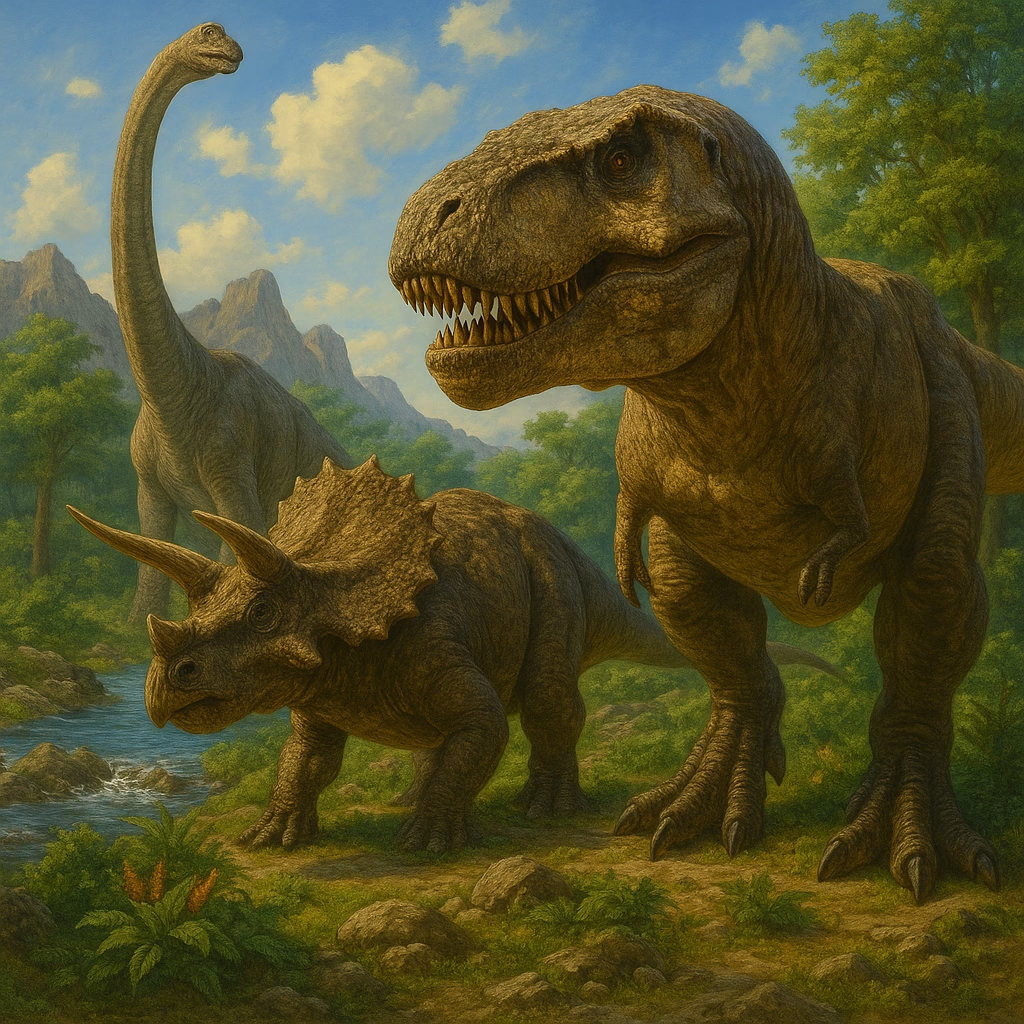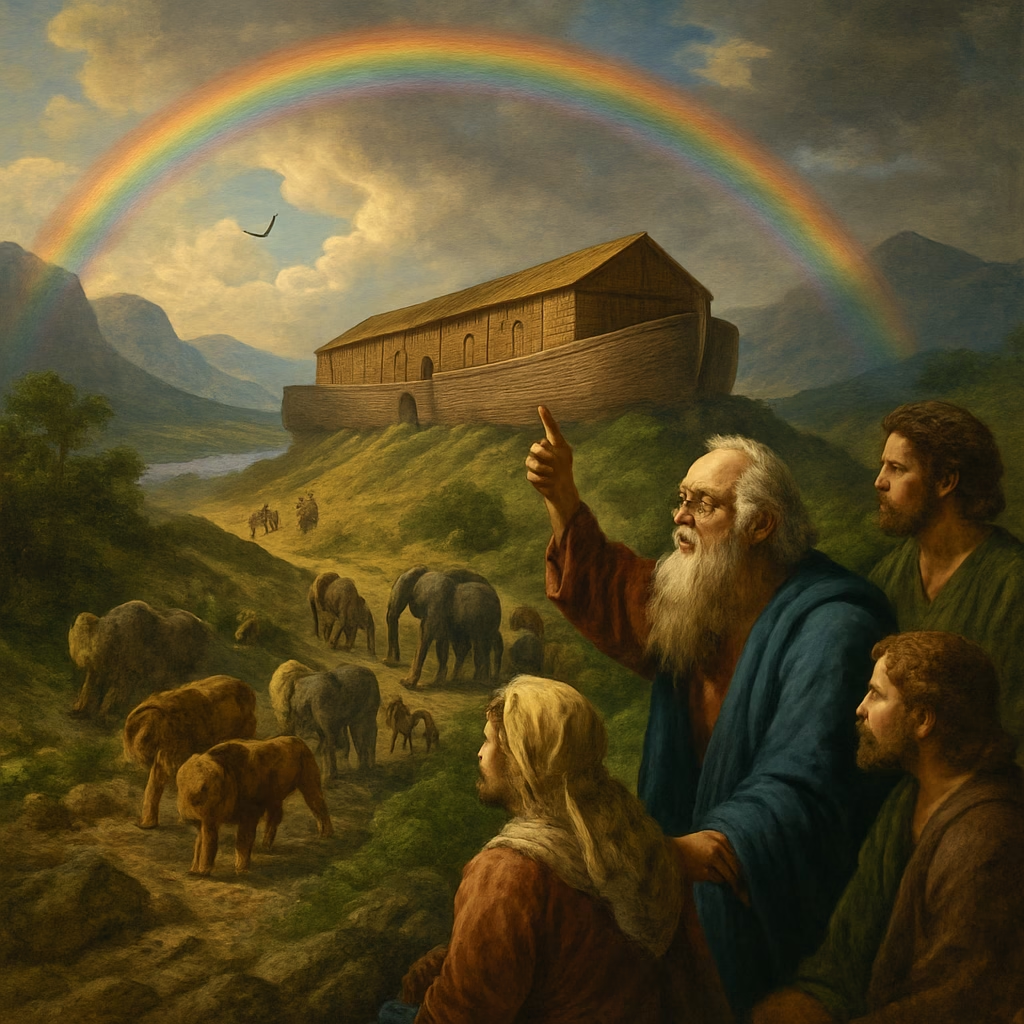What Does the Bible Say About Dinosaurs?
Dinosaurs spark curiosity, debate, and sometimes even doubt. But what does the Bible say about dinosaurs? Are they mentioned in Scripture? And how do these ancient creatures fit into the Christian understanding of creation?
Let’s explore what God’s Word reveals and how dinosaurs can actually affirm rather than contradict the truth of the Bible.
🦕 Are Dinosaurs Mentioned in the Bible?
While the word “dinosaur” wasn’t coined until the 19th century, the Bible does describe large, powerful creatures that many believe resemble dinosaurs.
📖 Behemoth – A Land Giant
Key Scripture:
“Look at Behemoth, which I made along with you and which feeds on grass like an ox… Its tail sways like a cedar.” – Job 40:15–17
Interpretation: Many scholars and creationists suggest Behemoth could describe a sauropod-like dinosaur, given its size, strength, and cedar-like tail.
Significance: This could be evidence of human and dinosaur coexistence, especially from a young-earth creationist view.
🔥 Leviathan – The Sea Monster
Key Scripture:
“Can you pull in Leviathan with a fishhook? … Out of its mouth go flames; sparks of fire shoot out.” – Job 41:1, 18–19
Interpretation: Leviathan is described as a terrifying, sea-dwelling creature, possibly a marine reptile or mythological symbol. Some link it to dinosaurs like plesiosaurs or large extinct reptiles.
Symbolism: It represents God’s power over chaos and is used to illustrate divine sovereignty.
🧬 Dinosaurs and the Creation Account
Genesis 1:24–25 tells us that God made “living creatures according to their kinds” on the sixth day. This would include land animals, possibly including dinosaurs.
Whether you believe in:
- Young Earth Creationism (dinosaurs lived with humans), or
- Old Earth Creationism (dinosaurs lived long before humanity),
The truth remains: God created all life.
🧭 Faith and Science: Do They Conflict?
No. The Bible is not a science textbook, but it perfectly complements science when interpreted through the lens of God’s design.
Dinosaurs testify to God’s creativity and the diversity of His creation.
Fossils can serve as reminders of a fallen world, echoing Romans 8:22 – “creation has been groaning…”
The Bible and science can walk together when guided by truth, humility, and faith.
🕊️ Devotional Takeaway: Trusting the God of All Time
If God is the Creator of the stars, seas, and even dinosaurs, we can trust Him with our future, questions, and doubts.
Even when we don’t have all the answers, we know the One who does.
🪨 “The secret things belong to the Lord our God, but the things revealed belong to us…” – Deuteronomy 29:29
🙏 A Prayer to the Creator of All Things
Heavenly Father,
Thank You for the wonder of Your creation, from the smallest cell to the mighty creatures of the past. When we face mysteries, help us not to fear but to marvel at Your greatness. Deepen our faith, strengthen our curiosity, and teach us to trust You in all things, seen and unseen.
In Jesus’ Name, Amen.
❓ FAQ: Dinosaurs and the Bible
Q1: Why doesn’t the Bible use the word “dinosaur”?
A: The word “dinosaur” was not coined until 1841. The Bible uses terms like behemoth and leviathan that may refer to such creatures.
Q2: Did humans and dinosaurs live at the same time?
A: Some believe they did, based on interpretations of Job and Genesis. Others see dinosaurs as extinct long before humans. Both views aim to affirm God’s role as Creator.
Q3: Do dinosaur fossils contradict the Bible?
A: No. Fossils demonstrate a rich history of life and death, consistent with a fallen world and God’s sovereignty over time.
Q4: Is believing in dinosaurs unbiblical?
A: Not at all. Recognizing dinosaurs as part of God’s creation only enhances our awe of His power.
Q5: Are dinosaurs mentioned in Revelation or prophecy?
A: Not directly. But imagery like dragons and beasts may symbolically resemble powerful or terrifying creatures, reflecting judgment and chaos.
📌 Final Thought
Dinosaurs are not in conflict with faith, they are a testament to the majesty and mystery of God’s creation. Whether walking on land, swimming in seas, or now resting in fossil form, they remind us that God’s wisdom spans past, present, and future.
So the next time you see a dinosaur fossil, don’t ask “how?” – ask “Who?”






